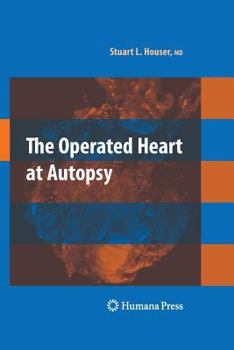The Operated Heart at Autopsy
Select Format
Select Condition 
Book Overview
After 17 years of private practice as a cardiovascular surgeon, my partners qu- tionedtherationalityofmydecisiontoleavetheclinicalpracticebehindandbecome acardiovascular pathologist. Infact, theirdisbeliefofmyintentiontomakethe"leap of faith" was understandable. For a surgeon, the operating room is where the action is. It is as simple as that. And when a cardiac surgeon can hold in his hand a beating heart, now off-bypass and improved by an operation just completed, satisfaction is real and profound. However, life is complex. Throughout my surgical career, questions regarding the pathogenesis of atherosclerotic cardiovascular disease arose; curiosities of va- ous phenotypes of the disease piqued my interest. I became aware of the power of investigative techniques that might address these questions. I then began to realize that my career in the operating room left me little time to address them. I needed to study the disease full time in order to contribute to my understanding of it. Ironically, my ?rst autopsy as a pathology resident was on an individual with a past history of coronary artery bypass surgery. When it came to examining the heart, the dissection, as all pathologists know, was complex. However, I found it to be straightforward and enjoyable. But I subsequently learned that my fellow re- dents and mentors did not share my intrigue and comfort in de?ning the nuances of the operated heart.
Format:Paperback
Language:English
ISBN:1493957856
ISBN13:9781493957859
Release Date:August 2016
Publisher:Humana
Length:187 Pages
Weight:0.64 lbs.
Dimensions:0.4" x 6.1" x 9.2"
Customer Reviews
0 rating





